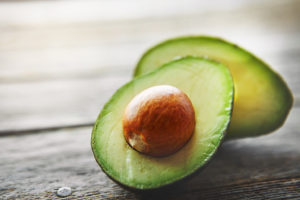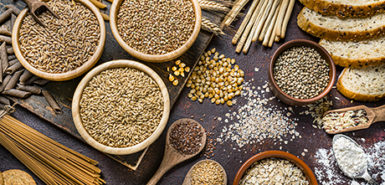
Avocado lovers, take heart.
Eating two or more servings of avocado weekly may reduce the risk of heart attack in men and women, according to new research. Substituting avocado for less healthy foods may be even more beneficial.
The 30-year study followed more than 110,000 health professionals. Participants who ate two servings of avocado—roughly half a cup—each week had a 16% lower risk of cardiovascular disease and a 21% lower risk of coronary heart disease.
Replacing half a serving daily of margarine, butter, egg, yogurt, cheese or processed meats like bacon with avocado was linked to a 16% to 22% lower risk of cardiovascular disease events, such as heart attack.
While the study had limitations—it drew from a pool of mostly white health care professionals and relied on self-reporting—the results underline the health benefits of avocados, said Holly Dykstra, a cardiovascular dietitian in preventive cardiology and rehab at Spectrum Health.
As part of a well-balanced diet, avocados pack a powerful nutritional punch, she said.
Rich in nutrients
“The avocado is really pretty cool because it has a ton of nutrients bite for bite,” Dykstra said. “They are really nutrient-dense.”
Take fat, for example.
Dietary guidelines recommend that, generally speaking, approximately 15% to 35% of our calories come from fats. Most of them, however, should be the unsaturated variety.
Avocados have more monounsaturated, or healthy, fats, Dykstra said. Replacing saturated fats like butter or lunchmeat with avocados can promote heart health by improving cholesterol.
These heart-healthy fats also help us feel full, which can help us feel more satisfied between meals, she said.
Avocados also pack 3 grams of fiber per serving.
Keep it green
Many of us may feel a bit like Goldilocks when it comes to finding that perfect avocado.
Too soft? Eat it today or store it in the crisper drawer of the refrigerator.
Too hard? Let it ripen in a cool, dark place, or speed the process by placing it in a paper bag with gas-emitting fruits like an apple, banana or kiwi.
Just right? Enjoy. Add lemon juice to the other half to slow down the darkening process. Another option is to blend ripe avocados and freeze them in ice-cube trays for future use.
“Fiber is incredibly helpful for heart health but also for blood sugars and energy levels,” Dykstra said.
The soluble fiber found in avocados also promotes digestive health, and may also help reduce cholesterol.
Avocados also have a ton of vitamins and minerals in them, she said.
Potassium nears the top of the list when it comes to heart health.
“It’s helpful for regulating blood pressure and it’s helpful for the nervous system, too,” Dykstra said. “When we eat an adequate amount of potassium, it may help protect against stroke as well as hypertension.”
Other major players include vitamins E, B and C, all of which boost our energy and immune systems.
Need another reason to up your avocado intake? They’re also high in antioxidants, which may reduce the risk of some chronic diseases and may also improve both heart and brain health.
Beyond avocado toast
Avocados also taste good. Other healthy foods, such as kale and Brussels sprouts, have seen a resurgence, but avocados may be among the most popular picks in the produce aisle right now.
And when it comes to adding them to your diet, the sky’s the limit, Dykstra said.
You can swap the butter on your toast with mashed avocado or replace lunchmeat or cheese with avocado slices.
Other suggestions: Add avocados to fish or bean tacos for a boost in flavor and satiety, or blend them into smoothies. You can also chunk them on top of your soup or baked potato.
Of course, avocados also inject color and flavor to salads and grain bowls. Like neutral paint colors and your trusty black cardigan, an avocado goes with most anything.
“It’s pretty versatile as far as flavor goes,” Dykstra said.
 /a>
/a>
 /a>
/a>
 /a>
/a>